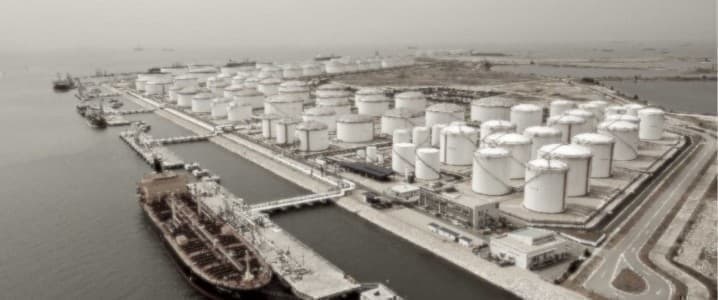Fears that Iran will flood the oil markets with its crude now that Joe Biden is set to take office are unfounded, OPEC’s Secretary General Mohammed Barkindo told Gulf Intelligence Global UAE Energy Forum 2021 on Wednesday.
“Rest assured, there is no need for the market to be of heightened concern at the moment,” Barkindo said in an effort to calm those fears, adding that they were following the developments closely.
Iran’s oil production is not currently limited by OPEC’s production cut agreement—only by U.S. sanctions on its exports.
The fears that Iran could possibly ramp up crude oil production come after six consecutive increases in OPEC’s crude oil production, with the group responsible for production 25.59 million bpd of oil in December, according to the most recent Reuters survey. December’s increase over November was mostly due to another OPEC member that is not bound by the production cut agreement—Libya.
But Saudi Arabia last week invigorated oil markets by agreeing on its own to voluntarily cut another million barrels per day of oil production, in addition to the limits imposed on it through the agreement.
Iran is currently producing just under 2 million barrels per day, according to OPEC’s most recent Monthly Oil Market Report. But Iran’s average crude production in 2019 was 2.356 million barrels per day, while it was still under sanctions. In 2018, before the sanctions, Iran produced an average of more than 3.5 million barrels per day.
And oil demand is still lagging, so a spooked market would understandably be so at the thought of a potential increase of more than a million barrels per day, completing offsetting Saudi Arabia’s promise to cut an extra million barrels.
"We have established a record of continuously adapting ... being flexible and addressing issues as they emerge," Barkindo said.
By Julianne Geiger for Oilprice.com
More Top Reads From Oilprice.com:
- Oil Bulls Are Back
- Asian Buyers Rush To Secure North Sea Oil After Saudi Surprise Cut
- Oil, Gas Rigs Increase For Seventh Straight Week

















The second reason is that neither a lifting of sanctions nor an easing of them is going to happen under a Biden administration. Iran has made it clear from the start that that it will neither agree to any limits on its nuclear and ballistic missile development programmes nor will it negotiate with President Biden without a lifting of US sanctions first or at least a significant easing of the sanctions. This is something President-elect Biden will find difficult to accept and this is the crux of the problem. That is why US sanctions on Iran will continue well into the future.
On the other hand, one has to consider the unthinkable that Iran is satisfied with the current status quo. That is why it has been demanding $70 bn compensations from the United States for the loss of oil revenues caused by the sanctions knowing full well that the US will never accede to that and also insisting on a lifting of the sanctions as the price for negotiations with President Biden administration.
Iran might be happy by the level of success it has achieved in nullifying and evading the sanctions. It might decide to go for broke with the hope of having the sanctions lifted without having to accept any limitations on its nuclear and missile development programmes.
Geopolitically, Iran may even be think that the sanctions are a small price to pay for forcing the ejection of US military presence from Iraq and enhancing its political and economic influence in Iraq.
Dr Mamdouh G Salameh
International Oil Economist
Visiting Professor of Energy Economics at ESCP Europe Business School, London